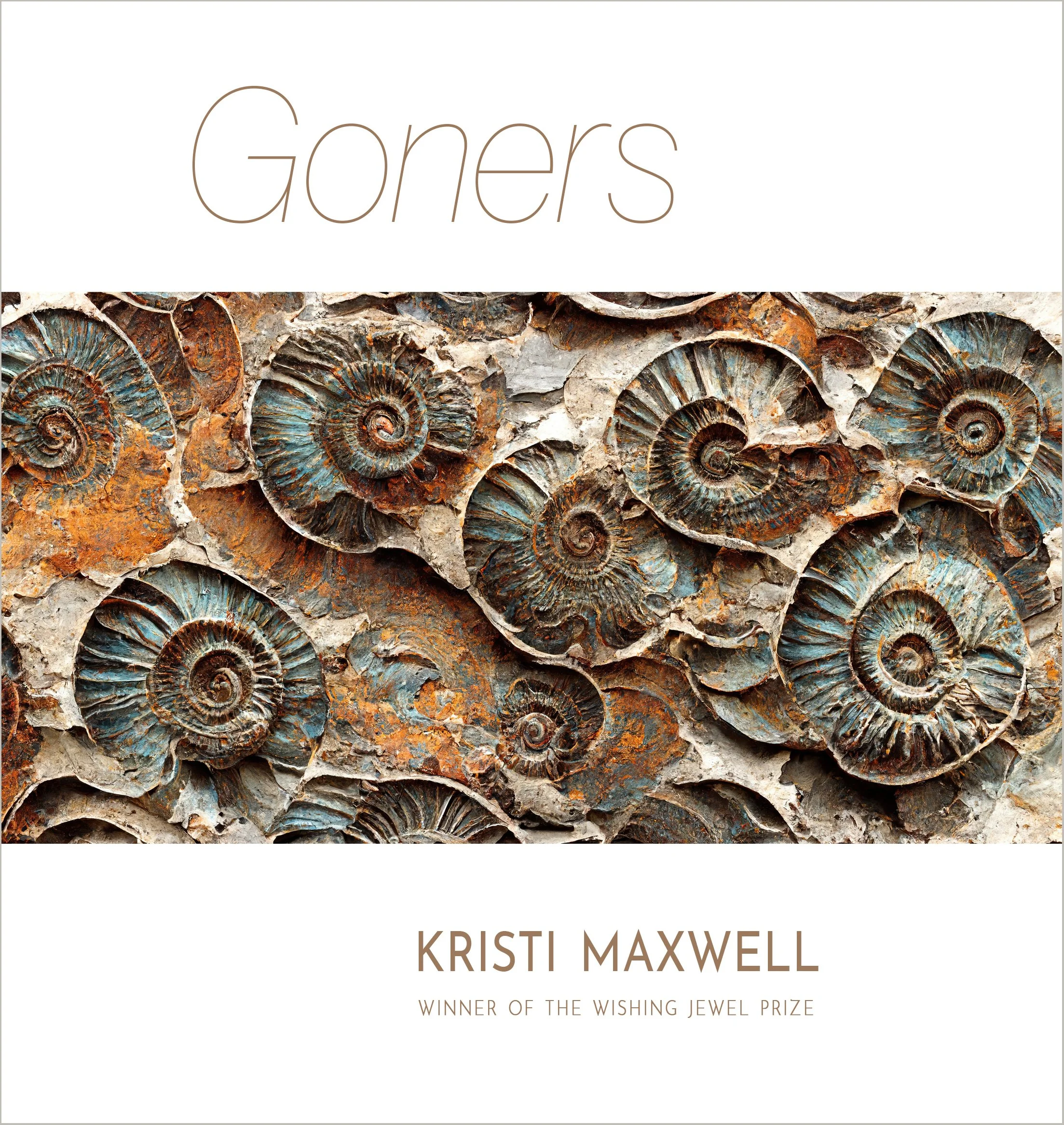Goners by Kristi Maxwell
Goners by Kristi Maxwell
85 pages
© 2023
ISBN: 978-1-961834-98-9
Book Design: Christopher Nelson
Perfect-bound
7.25” x 7.5”
— Winner of the Wishing Jewel Prize —
awarded for an innovative manuscript that challenges expectations of what a book of poems can be
The poems of Goners are lipograms, an ancient form that demands certain letters be excluded when writing, in Maxwell’s case, the letters comprising the names of endangered animals. As she describes, “The poem ‘Cheetah,’ for instance, uses 21 of 26 letters, all but a, c, e, h, and t, so no articles, no cats, no being, no are or were or was, no choice, etc. (no etc.).” In the context of the corrosive effects of imperialism and industrialization, Goners questions the common practice of elegizing and employs an alternative mode. The animals in the titles are absent from the poems—they’re gone. Instead, in a haunting gesture, the poems foreground the role anthropocentrism plays in the sixth extinction underway.
Praise for Goners
In these harrowing poems of climate despair, Maxwell rakes elegiac songs from the "sunken forms" that appear, in language and in landscape, as species vanish from our planet. These lyrics, virtuosic in their attention to image, line and sonic texture, pour into each animal-absence a full measure of radiant grief for all we've lost and are losing. With each poem, Goners opens profound spaces of inquiry, of mourning, and of reckoning unlike any I've read before; this book is a tour de force.
—Kiki Petrosino, author of White Blood: A Lyric of Virginia
Kristi Maxwell’s Goners generates a wild and uncanny language for “unknowing us.” Marking creaturely absences, inventing dizzying idioms, Maxwell’s lipograms are a distorted, illuminating mirror held to our calamitous present. These astonishing poems offer a new way of understanding extinction as a massive terraforming project, not only of Earth systems and species lifeways, but also of language itself. Erased, enclosed, destroyed, reinvented: the ecopoetic syntax of Goners reveals the terrifying and wondrous work poetry can do to chronicle the violence of anthropogenic making and to imagine other possible futures.
—Margaret Ronda, author of Remainders: American Poetry at Nature’s End
These poems are stuffed with sound as if to clamor out the silence to come. They are strangely more piercing in their skirting of the animal than if they went arrow-first at it. Maxwell expertly plucks the sonic gossip from the disaster we are in, revealing, poem by poem, these naked pages “fresh as wet blood.”
—Eleni Sikelianos, author of Your Kingdom
Kristi Maxwell’s Goners evinces language as our species’ most joyous production and the technology of our most total and fatal predations on the planet, our fellow creatures, those we perceive as other, those we perceive as ours. English is the imperial language par excellence, both in its colonial and corporate modes; just so, as the tones and phonologies of English wash around in these salty pools, syntaxes of harm are temporarily suspended, while English’s harmful sequalae, extraction and extinction, are everywhere in effect. Amidst the systole and diastole of such loss and invention, I feel a strange new inclination suddenly leap forth. I think it is towards the next. Kristi Maxwell, what's next?
—Joyelle McSweeney, author of Toxicon and Arachne
Kristi Maxwell is the author of eight books of poems, including Goners (Green Linden Press, 2023), winner of the Wishing Jewel Prize; My My (Saturnalia Books, 2020); Realm Sixty-four (Ahsahta Press, 2008), editor’s choice for the Sawtooth Poetry Prize and finalist for the National Poetry Series; and Hush Sessions (Saturnalia, 2009), editor’s choice for the Saturnalia Books Poetry Prize. She’s an associate professor of English at the University of Louisville. Kristi holds a PhD in Literature & Creative Writing from the University of Cincinnati and an MFA in Poetry from the University of Arizona.


